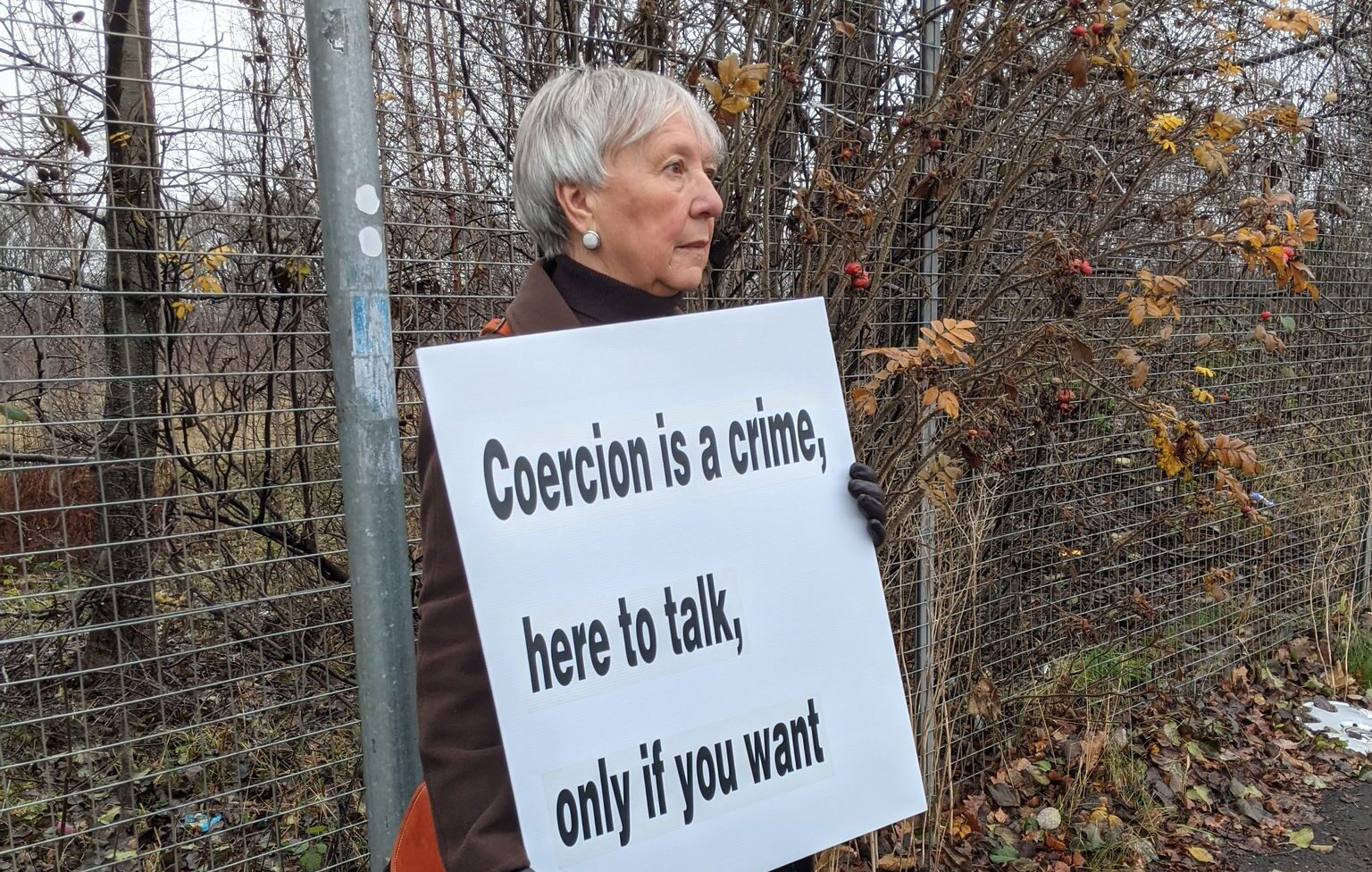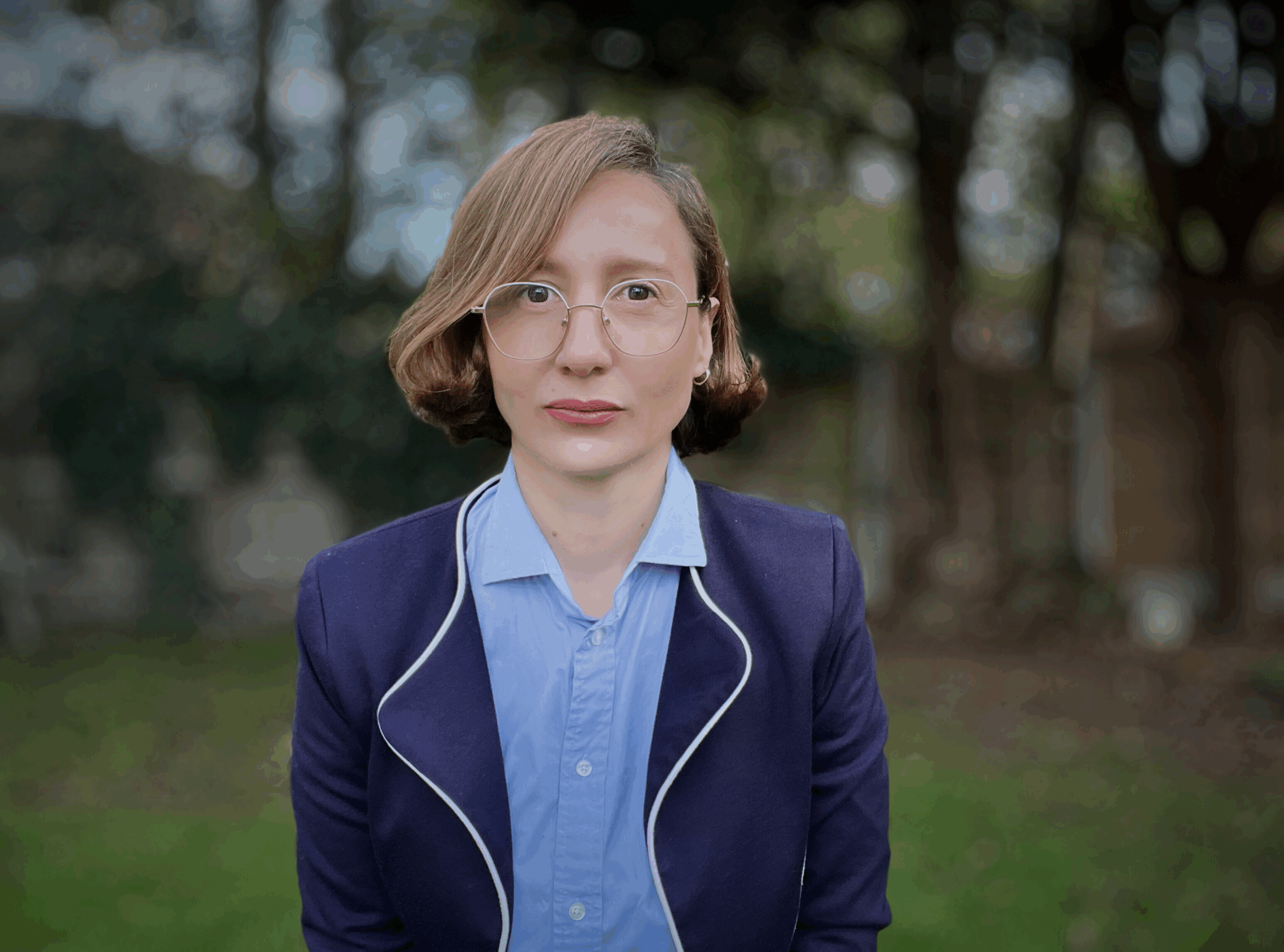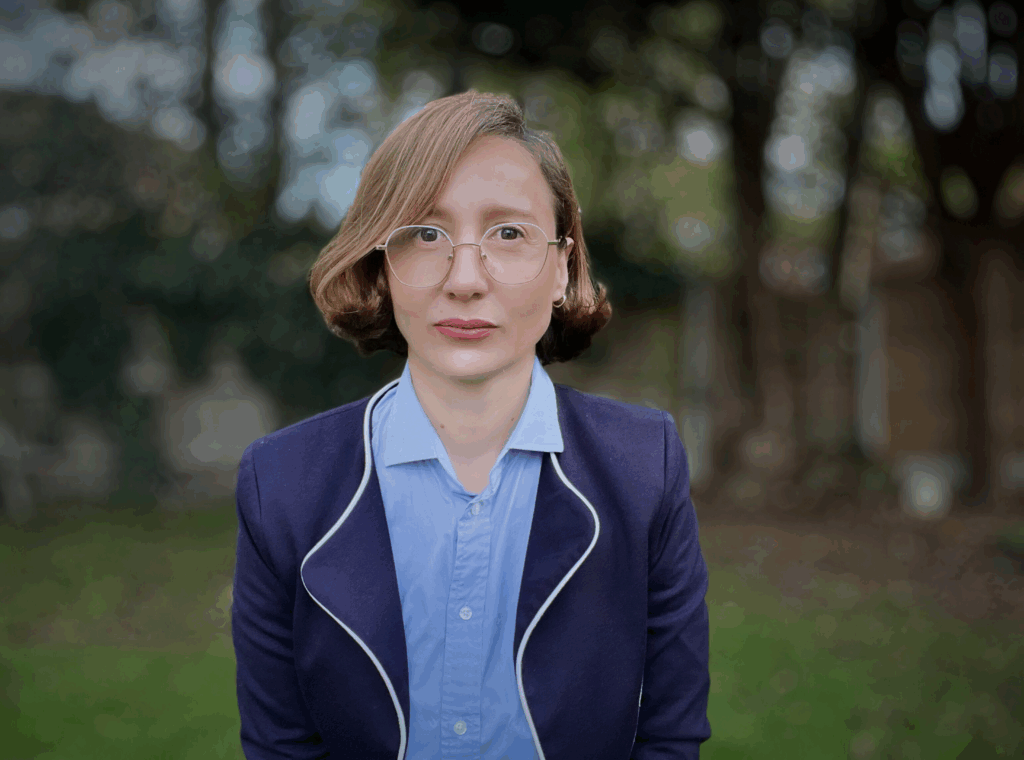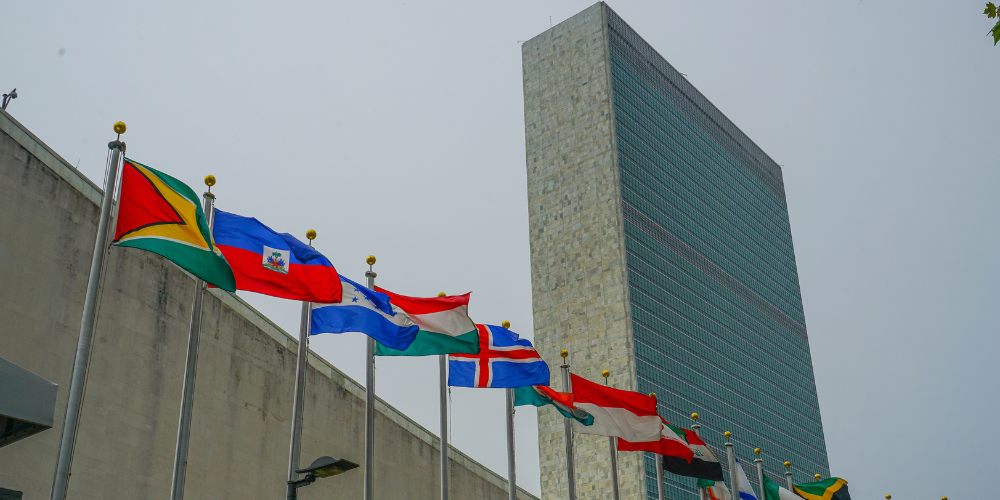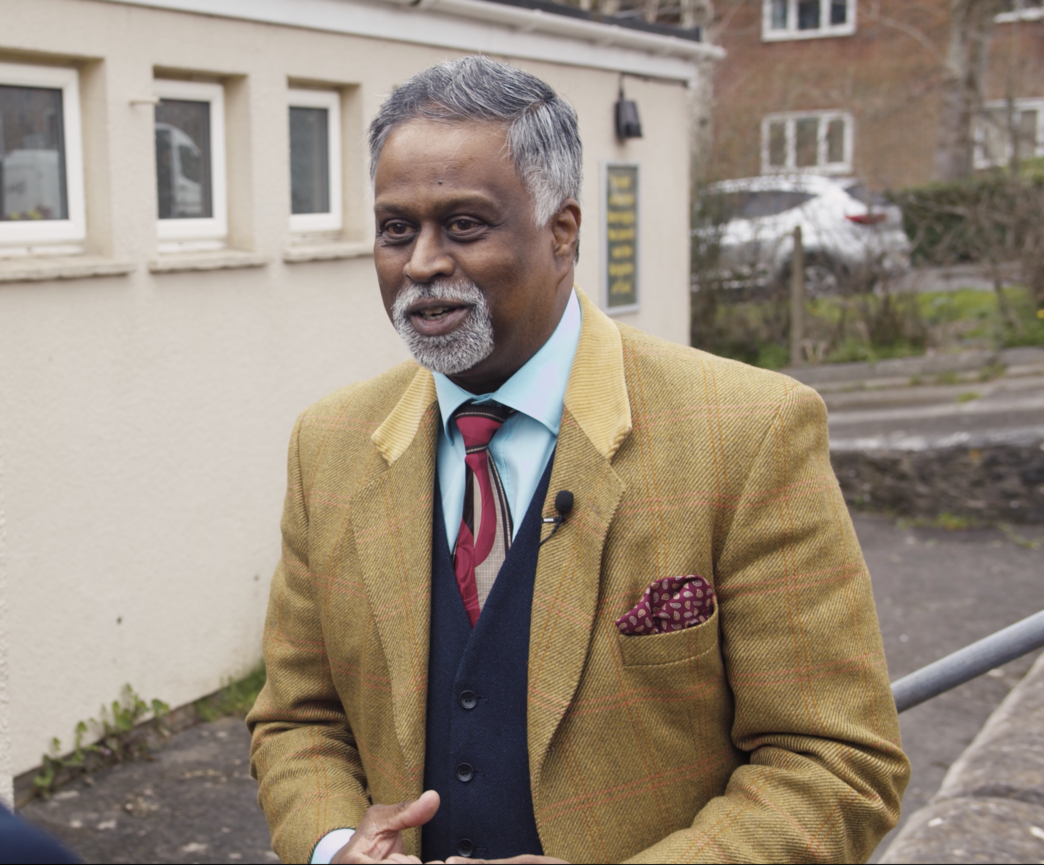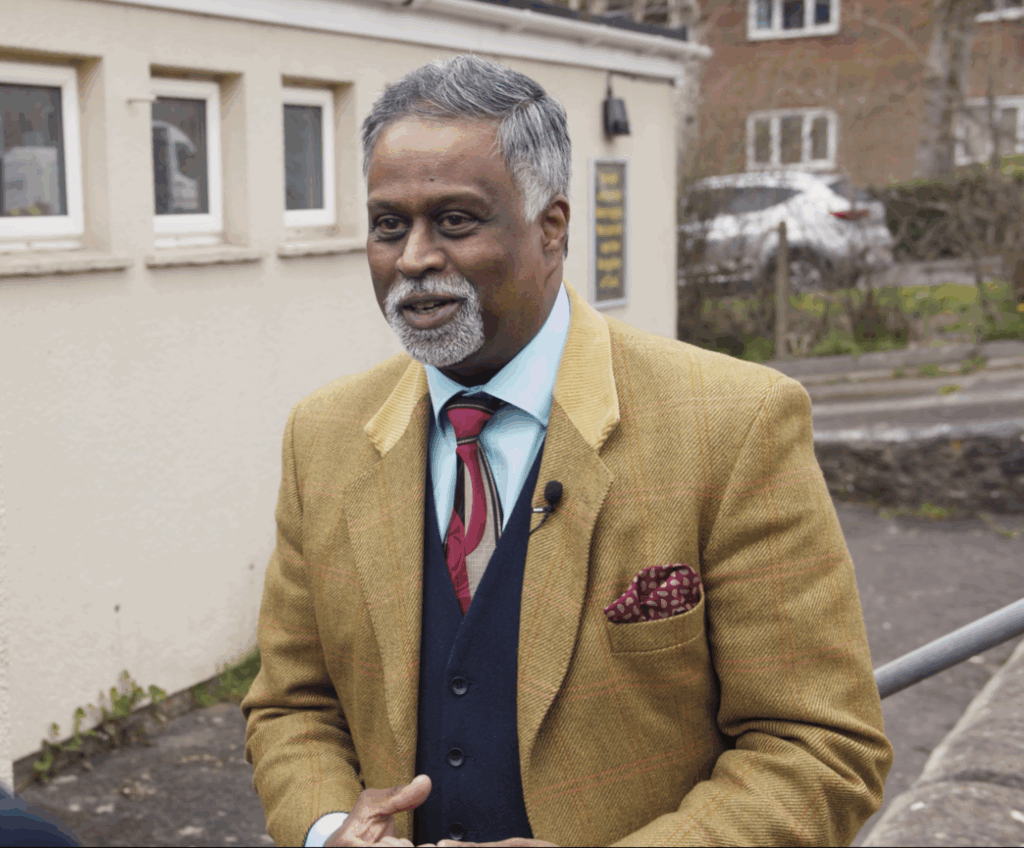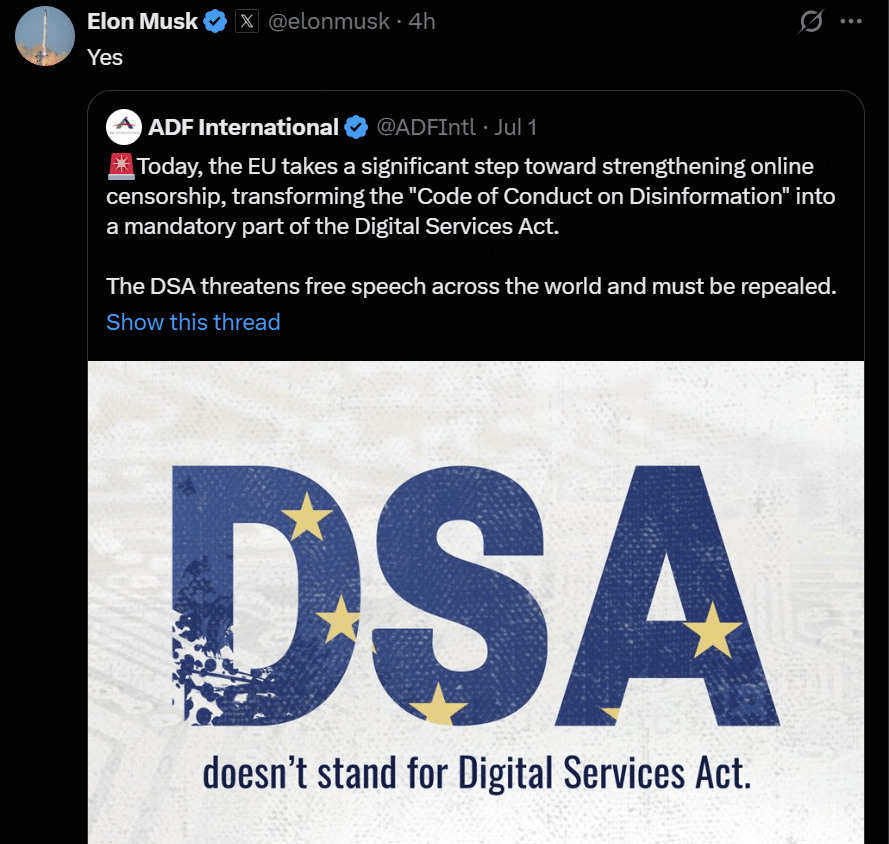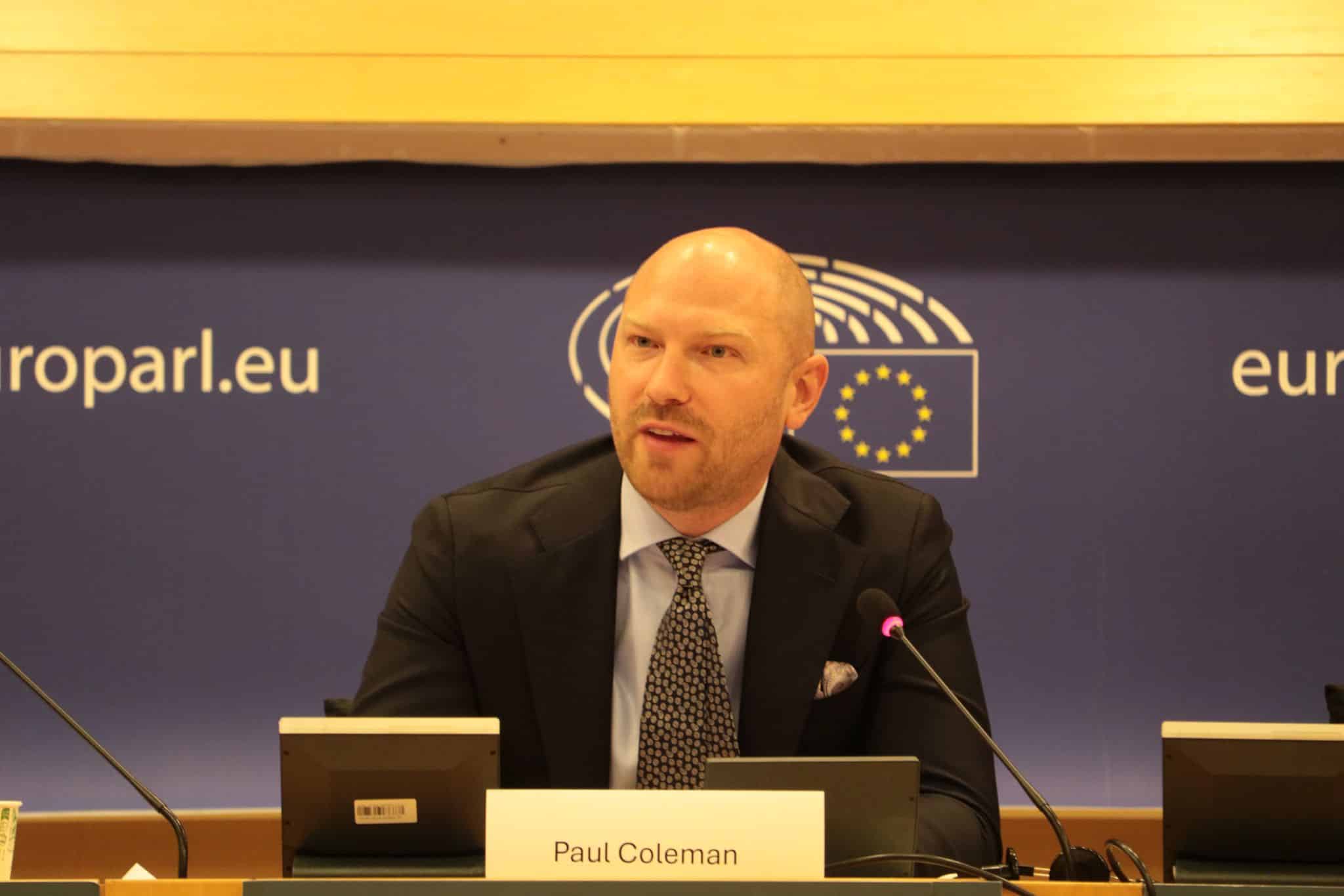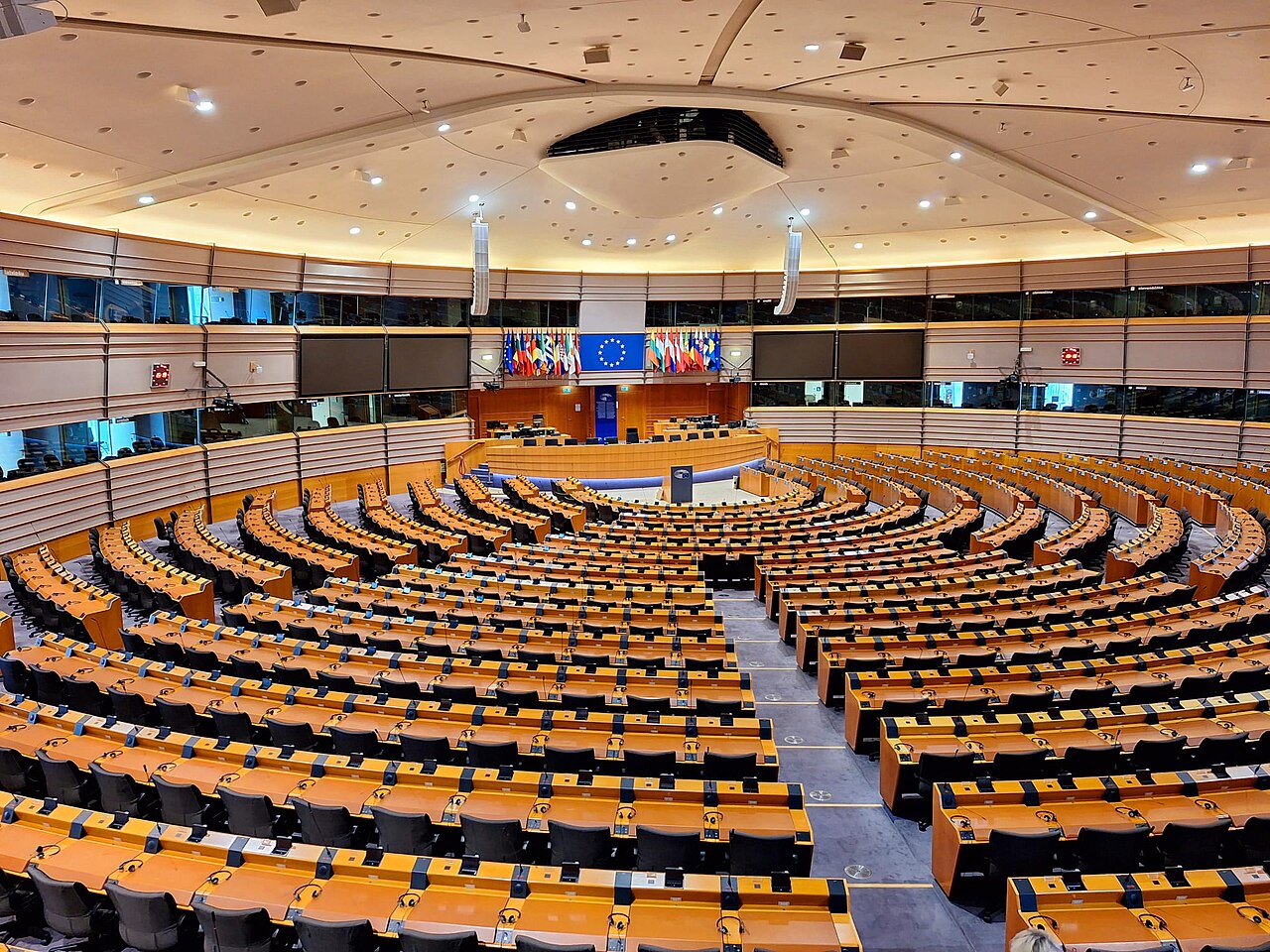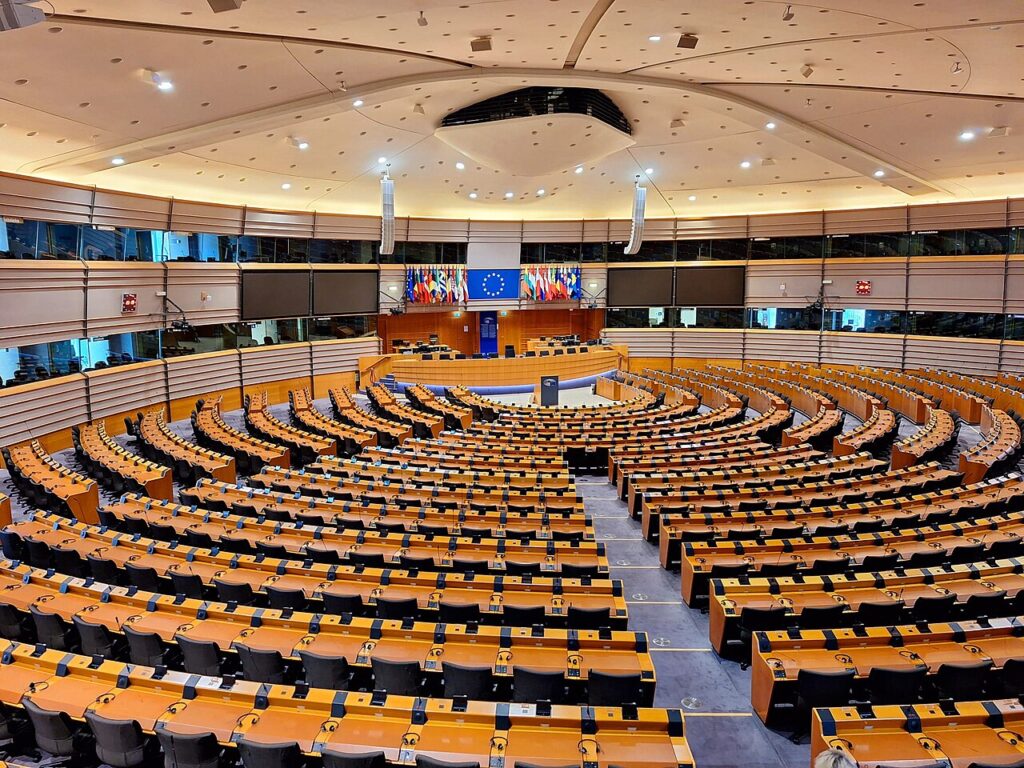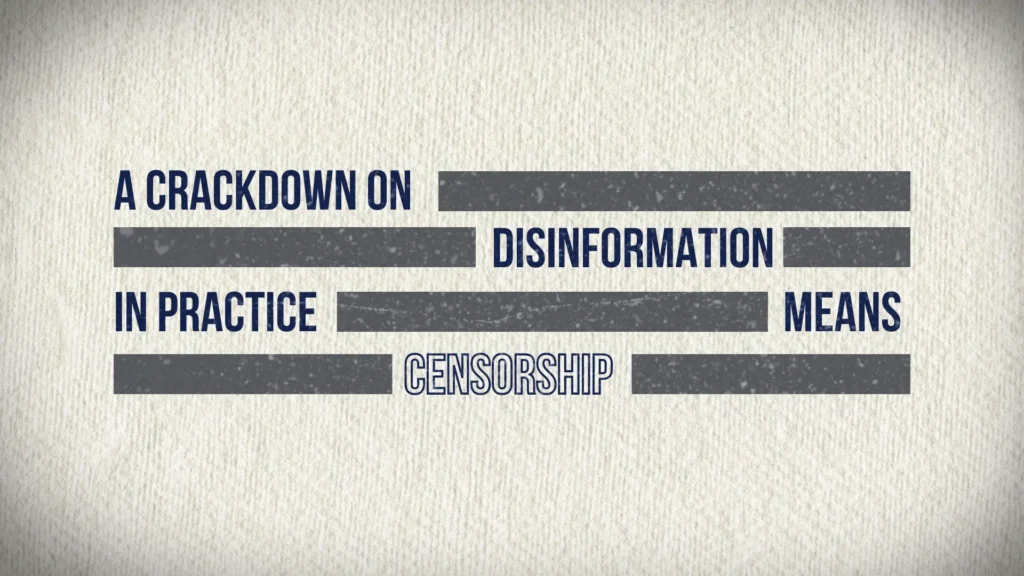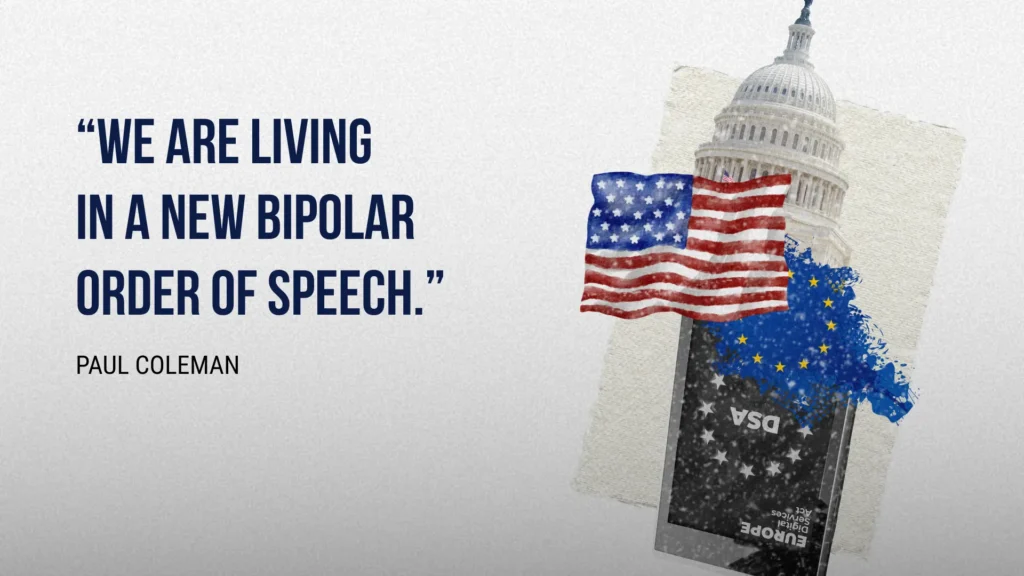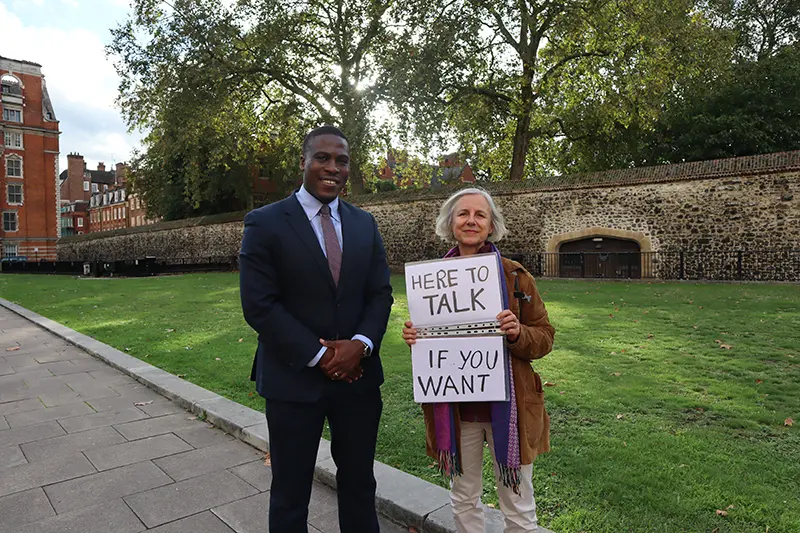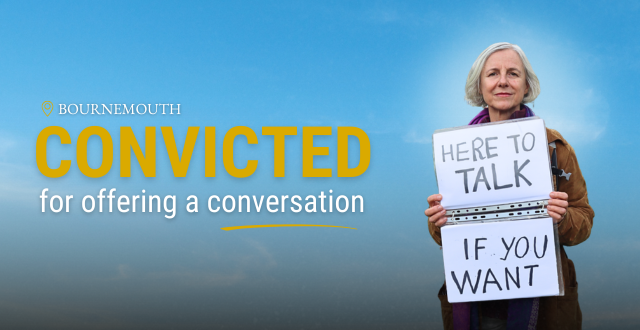- Christian grandmother Rose Docherty was arrested for holding a sign reading “Coercion is a crime, here to talk, only if you want” outside a Glasgow hospital.
- Tomorrow she will enter a plead in court; ADF International is legally supporting the case.
- Hearing follows Scottish Catholic Bishops’ Conference last week expressing concern about Mrs Docherty’s criminalisation.
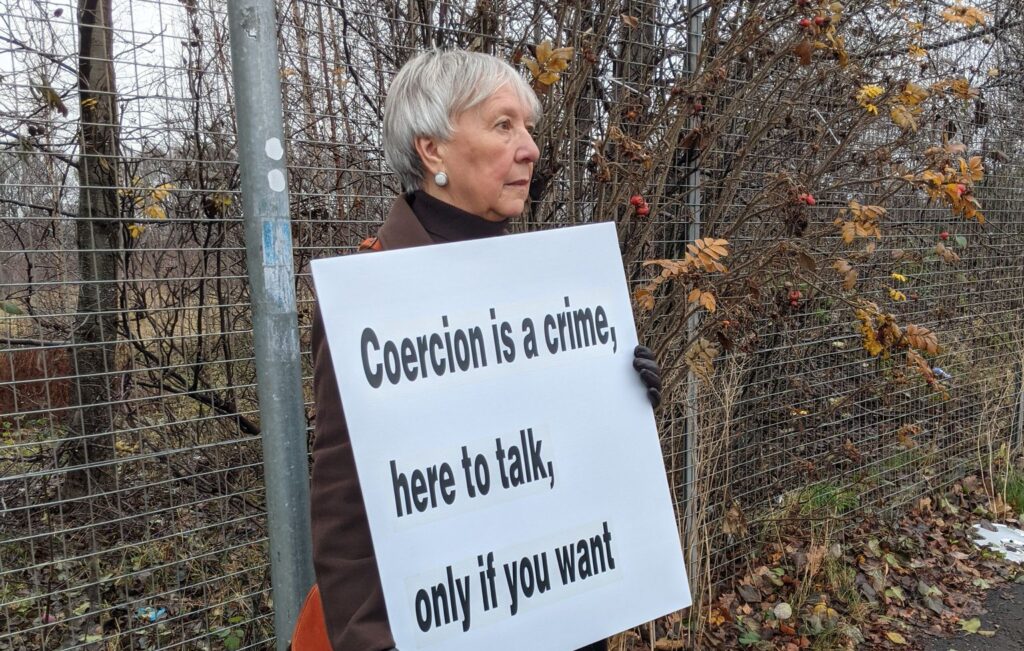
GLASGOW (12 January 2026) – A Glaswegian grandmother will enter a plea in court tomorrow afternoon after she was arrested and criminally charged for offering consensual conversation in a “buffer zone”.
Rose Docherty, 75, faces two charges related to alleged “influencing” within a “buffer zone”, despite having only stood peacefully and silently offering consensual conversation outside the Queen Elizabeth University Hospital in Glasgow last September.
She held a sign that read: “Coercion is a crime, here to talk, only if you want” and did not approach any individual or make any statement about abortion.
Mrs Docherty will tomorrow enter a plea at Glasgow Sheriff Court. The hearing is due to start at 2pm.
The Christian grandmother is the first person to be charged under Scotland’s censorial 2024 “buffer zone” law, which forbids harassment, intimidation and “influencing” of anyone seeking to access abortion services. The “buffer zones” are enforced within 200 metres of every hospital.
The US State Department expressed concern over Mrs Docherty’s arrest as “another egregious example of the tyrannical suppression of free speech happening across Europe” and last week the Scottish Catholic Bishops’ Conference also expressed concern, and strongly criticised Scotland’s “buffer zone” legislation.
“Everybody has the right to engage in consensual conversation. I held my sign with love and compassion, inviting anyone who wants to chat, to do so – and stood peacefully, not approaching anyone. I should not be treated as a criminal for inviting people to chat with me – lending a listening ear. Conversation is not forbidden on the streets of Glasgow. And yet, this is the second time I have been arrested for doing just that.”"
- Rose Docherty
Mrs Docherty said: “Everybody has the right to engage in consensual conversation. I held my sign with love and compassion, inviting anyone who wants to chat, to do so – and stood peacefully, not approaching anyone.
“I should not be treated as a criminal for inviting people to chat with me – lending a listening ear. Conversation is not forbidden on the streets of Glasgow. And yet, this is the second time I have been arrested for doing just that.”
Legal Counsel for ADF International, Jeremiah Igunnubole commented:
“It’s deeply concerning that Scottish policing resources are being ploughed into arresting and prosecuting a peaceful grandmother offering to speak to people in public, rather than focusing on the problems caused by real crime in Glasgow.
“This is not a case about harassment, intimidation or violent protest – this is simply a grandmother, who held a sign offering to speak to anyone who would like to engage.”
Following her arrest, Mrs Docherty was held in custody for several hours. She was refused a chair to sit on in her cell, despite making it known that she had a double hip replacement.
This was Mrs Docherty’s second arrest for peacefully offering consensual conversation. Last August, Scottish authorities dropped their case against her for holding the same sign in the same place, after a global outcry against the 75-year-old grandmother’s arrest, including concerns raised in an online post by the US State Department.
The US State Department commented on Mrs Docherty’s latest arrest:
“The arrest of Rose Docherty is another egregious example of the tyrannical suppression of free speech happening across Europe.
“When 75-year-old grandmothers are being arrested for standing peacefully and offering conversation, common sense and basic civility are under attack.
“The United States will always speak out against these violations of fundamental rights.”
The architect of Scotland’s “buffer zone” law, Gillian Mackay MSP, admitted on BBC Scotland earlier last year that the vague prohibitions in the legislation could criminalise someone for praying visibly from a window in their home within a “buffer zone”, “depending on who’s passing by the window.”
US Vice President JD Vance highlighted this law as a particular matter for concern in his Munich Security Conference speech in February last year.

